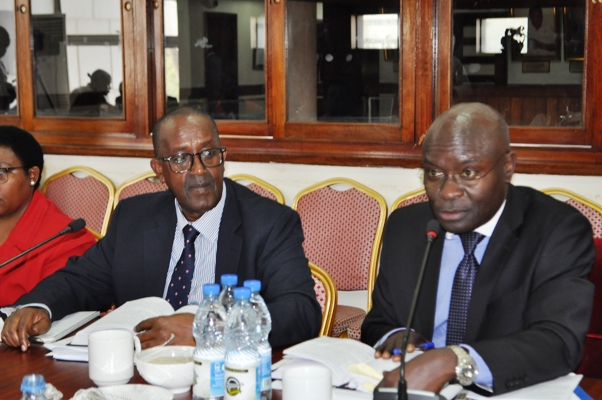The Ministry of Education has decided to suspend the registration and licensing of new nursing and midwifery institutions across the country.
Dr. Safinah Musene Kisu, the commissioner in charge of health training at the Ministry of Education said following concern about the influx of nursing and midwifery students, hospitals are being overwhelmed with the growing number of nurses. Those graduating can no longer be accommodated at regional referral hospitals and general hospitals across the country.
Musene was on Saturday afternoon addressing principals and center coordinators at Uganda Nurses and Midwifery Examinations Board-UNMEB offices ahead of the nurses and midwifery June examinations.
Dr. Musene said individuals have of recently been rushing to establish private nursing schools expecting to cash in similar to a trend when people rushed to establish private schools when education was liberalized. Musene Kisu emphasized that the Ministry of Education could not grant licenses to new institutions, given that it is aware of the shortage of hospital space required for essential practical sessions.
Training institutions are required to have placement practicum sites such as teaching hospitals or health centers in order to operate.
Musene said that most of the approved clinical sites have already reached their maximum capacity for accepting schools, and some even have an excess of students beyond the recommended limit.
In the past, the training of health workers was solely the responsibility of the government.
However, due to the increasing number of students and the financial burden of training and sustaining institutions, the government decided to liberalize the sector, allowing private entities to participate.
Initially, faith-based institutions took advantage of this opportunity and established training institutions within their healthcare facilities. As time passed, purely private institutions and individuals also ventured into this field.
Dr. Henry Mwebesa, the Director-General of Health Services at the Ministry of Health and also a UNMEB board member, used the same occasion to emphasize the significance of practical training for nurses and urged principals to prioritize this matter.
Dr. Mwebesa expressed concern that training institutions were overcrowding of nurse trainees at healthcare facilities.
He asked schools to align their schedules and allocate students to night and weekend shifts.
Currently, most schools do not assign their students to such shifts, depriving them of the valuable experience of working during those specific times.
However, Dr. Mwebesa stressed the importance of gaining exposure to night and weekend duties since nurses will be required to work during those hours in their future careers.
-URN





